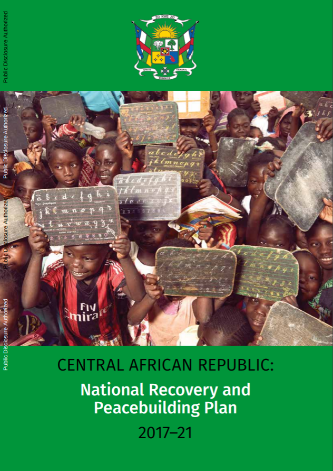
Central African Republic: National Recovery and Peacebuilding Plan
The RPBA in Central African Republic (CAR), adopted by the government as the National Recovery and Peacebuilding Plan (RCPCA), was initiated by an April 2016 government request.
01 July 2017
Cameroon faces multiple challenges, at a time when factors related to internal fragility and the impact of a volatile sub-regional context threaten to undermine the relative peace and stability the country has been trying to preserve in an unstable neighborhood. In the Northern and Eastern regions (Far North, North, Adamawa, and East), these challenges are associated with long-standing marginalization and vulnerability, and the more recent consequences of external pressures related to Boko Haram, along with the conflict in the Central African Republic (CAR), particularly in the cross-border areas. In addition, the population’s vulnerability to food insecurity and disease epidemics has increased due to the deteriorating economic landscape, climate-related events, and the continued lack of access to adequate basic social services. The impact has also been compounded by the macroeconomic crisis following the drop-in oil prices starting in 2014. This situation has resulted in lower growth rates and has required strong fiscal consolidation, as well as a need to increase government spending to address the security challenges and counter the impact of social services challenges. Chapter two of the report presents the context analysis, which forms the basis of a shared understanding of the situation and guides the identification of priorities. The priorities, the enabling strategic reforms and actions, and the expected strategic results are presented in chapter three. Chapter four presents the considerations for implementation, including coordination, monitoring, and evaluation; as well as for financing. Chapter five presents the main conclusions of the RPC process and strategy. The annexes provide a more detailed description of identified priorities (annexes one and two), the assessment of costs (annex three), the monitoring and evaluation framework (annex 4), and the main results of the surveys and focus groups (annexes five and six). A technical report, published separately, will include the thematic notes for each thematic area, the results matrixes, and the cost assessments. A mutual accountability framework, based on this strategy, will be agreed-upon between the government and partners as a roadmap for the RPC implementation phase. This will outline commitments by all parties to implement the RPC strategy, along with the implementation, financing, and monitoring and evaluation framework that will be put in place to oversee the implementation phase.
